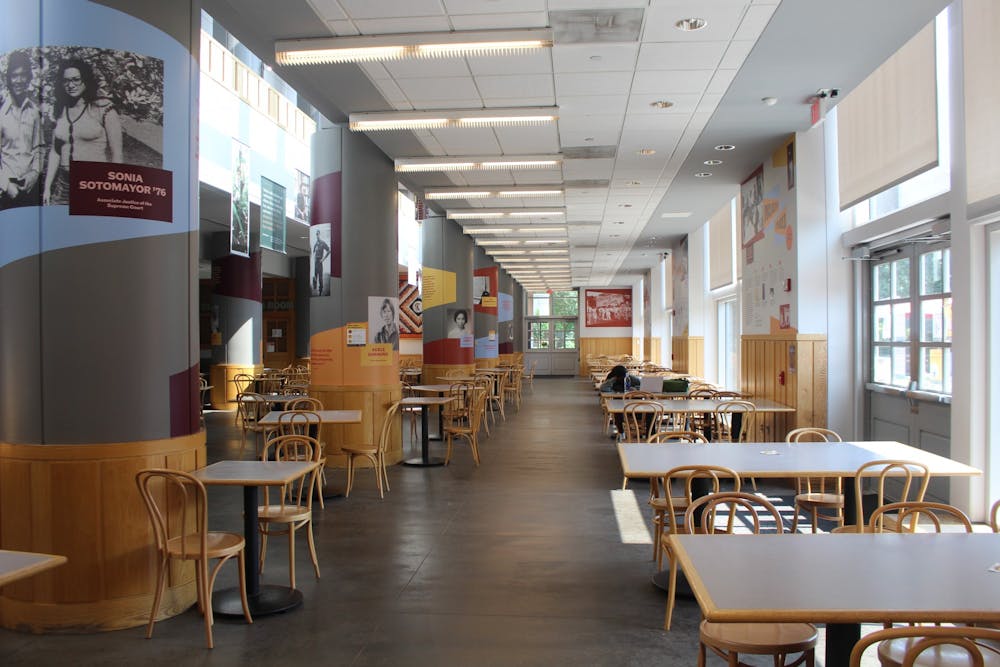On Oct. 20, 1970, in the pages of The Daily Princetonian, a columnist called on their fellow students to use the “two-week recess” (what we now know as fall break) to campaign against “Nixon Republicans” and protest the Vietnam War. The columnist explained that “apathy is the attitude of the moment,” even among those students who do oppose the war.
Even after 52 years, I believe that sentiment still rings true for the many Princeton students who feel dissatisfied with the apathy towards service and activism of their peers and of the University as a whole. While Princeton’s informal motto may be “in the nation’s service and the service of humanity,” few students truly engage in service during their time on campus.
There’s no scarcity of resources, service opportunities, or even time among students at Princeton. In thinking about students’ lack of service, we have only ourselves to blame.
When only 10 percent of Public and International Affairs students end up in the Public and Non-Profit sectors, a stark juxtaposition to both Princeton’s informal motto and the very inclusion of “public” in the major’s name, it’s unsurprising that the University is making efforts to increase student participation in service.
One such example is the recent rollout of LENS: Learning and Education through Service, an initiative that appears to expand on the already-existing PICS (Princeton Internships in Civic Service) program. (It is disheartening that the University felt it necessary to tear down the Princeton women’s history exhibit on Frist’s wall to make room for the advertisements of this expansion.)
They chose to describe the new program as “allow[ing] all undergraduates to spend a summer focused on service and social impact.” The University’s actions seem to indicate that the administration is focused on addressing a resource and opportunity deficit in relation to service on campus.
In actuality, no such deficit exists. Several avenues for pursuing service opportunities both during the academic year and during the summer already exist and can be easily found through the Pace Center for Civic Engagement’s website. In addition to the aforementioned PICS program, there’s Princeton RISE, Bogle Fellows in Civic Service, Projects for Peace, as well as numerous volunteer organizations on campus like El Centro ESL Tutoring and Arm in Arm, to name a few.
A common explanation for student apathy in relation to service on campus is that there’s simply not enough time to pursue service opportunities. Balancing Princeton’s notoriously difficult course load, along with clubs, sports, and social activities doesn’t leave room for service. So what if the University were to lighten its course work to free up students’ ability to pursue service?

I argue this would be ineffective because no number of extra hours in a day or even a paid service internship, as LENS offers, will attract students already indifferent to service. We have the ability to allot time in our busy schedules for the activities, academic or otherwise, that we value and prioritize above others. Princeton students already have the autonomy to fit service into their schedule — but only if they actively choose to prioritize it over other things.
Volunteering in vulnerable communities not only assists those populations, but humanizes people who are too often reduced to numbers in the media — whether that number is 2.76 million migrants crossing the border in 2022, 552,830 homeless people in the US, or 2 million people incarcerated in the U.S. criminal justice system. As soon-to-be graduates of a prestigious institution, there is no doubt that many of us will soon enter positions of power and hold the ability to influence the lives of those we’ve never met in immensely impactful ways.
While it takes great moral fortitude to leave the ivory tower or venture beyond Princeton’s “Orange Bubble” by volunteering in vulnerable communities, my hope is that those service experiences will help guide decisions made by Princeton’s future senators, judges, consultants, and executives.
Maybe a future prosecutor will think twice before sentencing a lower income and marginalized defendant to probation with 400 hours of community service once they remember that they struggled themselves to complete even three hours of service a week during college. Or perhaps volunteering as an ESL tutor may put a face to the migrants impacted by the policies of a future senator from Princeton.

No matter what class year you are at Princeton or how busy your schedule is, I believe we should all set aside two to three hours a week and commit to volunteering in the community outside of campus. The isolating “Orange Bubble” can very easily be broken if we commit to making the effort to leave it.
It’s imperative that Princeton students, as future leaders and decision makers of our society, humanize vulnerable populations and interact with others outside of our immediate community during their time as undergraduates.
Ashley Olenkiewicz is a sophomore and assistant Opinion editor for the ‘Prince’ studying public policy and journalism. She can be reached at ao8250@princeton.edu








